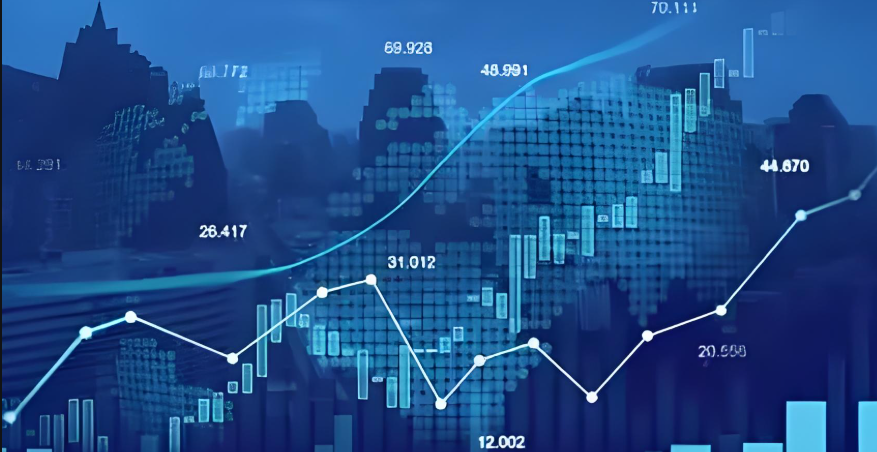Robust Economic Growth in the UAE
Advertisements
The United Arab Emirates (UAE) has long been recognized as a significant player in the global economic landscape, thanks in part to its vast oil reserves. However, recent analyses by the International Monetary Fund (IMF) suggest a shift in the UAE's economic growth narrative, showcasing a resilient economy that is steadily transitioning away from a heavy reliance on oil production. Despite the challenges posed by OPEC+ agreements, which may lead to reduced oil output, the UAE's overall economic momentum appears strong, with estimates anticipating a growth rate of approximately 4% as we approach 2025.
This optimism stems largely from the UAE's prosperous non-oil sectors, which have displayed remarkable performance across several key industries. For instance, tourism has become a cornerstone of economic development, particularly in bustling cities such as Dubai and Abu Dhabi. The United Nations World Tourism Organization highlighted that international arrivals to the UAE have surged, placing it among the top global destinations. Major attractions, such as the Burj Khalifa and Sheikh Zayed Grand Mosque, alongside events like Expo 2020 (held in 2021), have significantly bolstered tourism revenue, creating jobs and stimulating ancillary services.
In addition to tourism, the UAE's construction sector is booming, propelled by government-led infrastructure initiatives and private investments that are reshaping the urban landscape. Iconic skyscrapers and ambitious projects like the Abu Dhabi Midfield Terminal and various residential developments not only enhance the architectural beauty of the nation but also contribute to economic dynamism. As these infrastructural developments continue to unfold, they lay the groundwork for future economic activities and attract further investments.

Moreover, the UAE government has prioritized public expenditure across various domains such as education, healthcare, and transportation. Investments in these sectors have substantially improved the quality of public services, directly enhancing the living standards of residents. Initiatives aimed at fostering higher educational standards and universal healthcare access reflect the country's commitment to social development, which inadvertently fuels economic growth through increased productivity and consumer spending.
The financial services sector has also been experiencing significant expansions, driven by the establishment of international financial centers like the Dubai International Financial Centre (DIFC) and Abu Dhabi Global Market (ADGM). These free zones have attracted numerous global financial institutions, thus raising the UAE's profile as a financial hub in the Middle East. As international entities increasingly seek a foothold in the UAE, the financial sector plays a pivotal role in promoting confidence and investment in the broader economy.
Amidst these advancements, the UAE's reform initiatives targeting social and economic landscapes have proven effective in fueling growth. By streamlining business registration processes, reducing tax burdens, and providing support for entrepreneurs, the government has successfully cultivated a favorable environment for both domestic and foreign investment. The results of these reforms are evident, as capital inflows continue to be robust, demonstrating investor confidence in the UAE's economic future.
Interestingly, while housing costs and utility expenses have risen, the IMF forecasts that inflation will remain stable at around 2% by 2025. This stability is indicative of the UAE's adept management of inflationary pressures, thereby ensuring a conducive environment for long-term economic growth. The balance of maintaining low inflation while navigating external economic shocks is a testament to the nation's proactive regulatory frameworks and effective monetary policies.
Looking ahead, the sustainability of economic growth hinges on the continued diversification of sectors beyond oil. Although the non-oil sectors have shown promising results, there is a critical need for the UAE to intensify efforts in high-tech industries, innovation, and sustainable practices. Positioning itself as a leader in renewable energy, particularly with initiatives like the Mohammed bin Rashid Al Maktoum Solar Park, can contribute significantly to economic diversification while addressing global environmental concerns.
The UAE also faces the necessity of adjusting its policies to bolster market confidence. Ensuring that regulatory frameworks are adaptive to the changing global landscape is essential in enhancing both local and international investor determination to commit resources into the UAE economy. Such policies should emphasize transparency, efficiency, and a supportive community for entrepreneurs.
As the UAE assumes a prominent role in the Middle East, its economic trajectories have considerable implications for the global market. The nation's rich natural resources, robust non-oil industries, and strategic geographical positioning allow it to play a crucial role in international trade and finance. The ongoing evolution within the UAE's economy will affect not only regional stability but will also resonate on a global scale, influencing trade patterns and financial markets.
In conclusion, while the OPEC+ production limitations may pose challenges for oil output in the UAE, the TTL robust growth in various non-oil sectors presents a compelling case for the sustained economic vitality of the region. The concerted efforts by the government to enhance public services, foster innovation, and attract investments have set a clear path for a diversified and sustainable economic future. With ongoing collaboration with international partners and stakeholders, the UAE is poised to address global economic challenges, such as inflationary pressures and energy transitions, contributing its share towards bolstering global economic resilience.
Post Comment